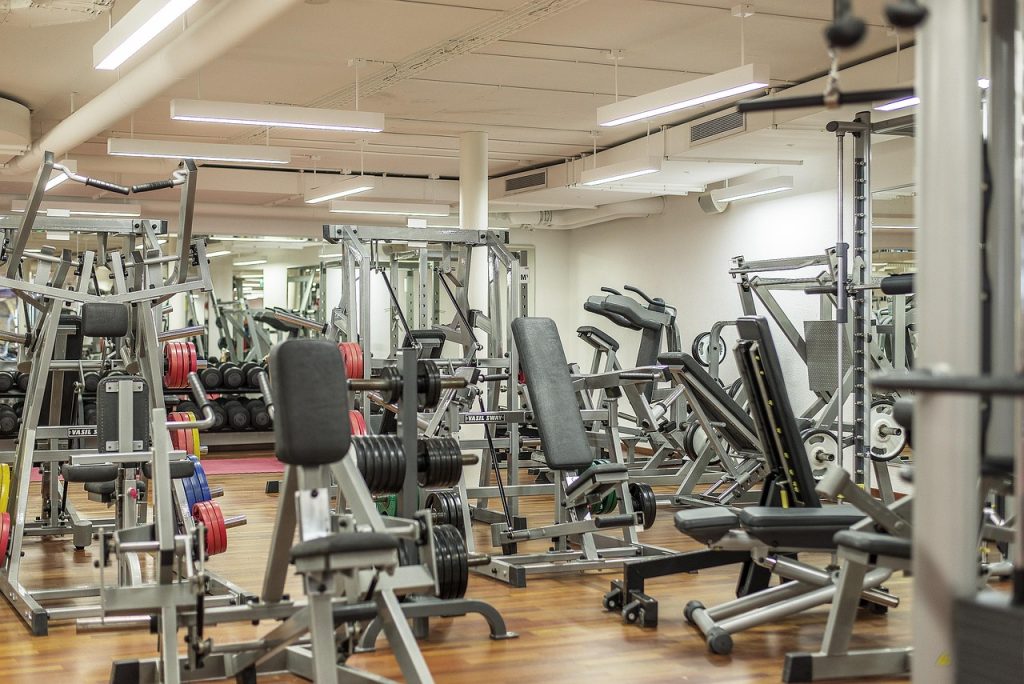Meta Description: Glutamine Bodybuilding
Are you curious about glutamine bodybuilding? Discover how this powerful amino acid can boost your recovery, muscle growth, and gut health. Learn about natural food sources and whether you truly need a supplement!
Glutamine Bodybuilding: Your Secret Weapon for Recovery, Growth, and Gut Health!
Hey there, fellow fitness enthusiast! You’re probably no stranger to the grind – the sweat, the heavy lifts, the satisfying burn that tells you you’re building something incredible. But what happens after the last rep? The truth is, a huge part of your progress isn’t made in the gym; it’s made during recovery. And when it comes to optimizing that recovery, you might have heard whispers about a certain amino acid: glutamine.
Is it the magic bullet some claim it to be? Is it essential for serious muscle gains? And how on earth do you get enough of it, especially if you’re trying to eat more naturally or lean into a plant-based lifestyle?
Today, we’re diving deep into the world of glutamine bodybuilding. My goal is to demystify this popular supplement, shed light on its true benefits, and empower you to make informed choices that fuel your gains and overall well-being. So, grab your post-workout shake (or a delicious, glutamine-rich snack!), and let’s get into it!
Table of Contents

What Exactly Is Glutamine, Anyway?
Think of glutamine as one of the most abundant building blocks in your body. It’s an amino acid, which are the fundamental components of proteins. While your body can actually produce glutamine on its own, making it a “non-essential” amino acid, there are times – like during intense training or stress – when your body’s demand for it outweighs its production. In these scenarios, glutamine can become “conditionally essential” (Examine.com, n.d.).
It plays a starring role in various bodily functions, not just muscle growth. We’re talking about immune system support, gut health, and even providing energy for rapidly dividing cells. Pretty cool, right?
The Bodybuilding Buzz: How Glutamine Supports Your Gains
So, why is glutamine such a hot topic in the bodybuilding world? It largely comes down to its potential roles in recovery and muscle maintenance.
1. Supercharging Muscle Recovery
After a brutal workout, your muscles are like tiny battlefields – microscopic tears, depleted energy stores, and a whole lot of inflammation. This is where glutamine steps in as a peacekeeper.
Reducing Muscle Soreness: Some research suggests that glutamine can help reduce Delayed Onset Muscle Soreness (DOMS), that familiar ache that hits a day or two after an intense session (Cleveland Clinic, n.d.). Less soreness means you can get back to training sooner and with more intensity!
Replenishing Glycogen: While not its primary role, glutamine can contribute to the replenishment of muscle glycogen stores, which are your muscles’ main energy source. This helps you recover faster for your next workout (QNT, 2024).
2. Protecting Your Hard-Earned Muscle (Anti-Catabolism)
When your body is under stress, like during prolonged intense training or a calorie deficit, it might start breaking down muscle tissue for energy. This is called catabolism – the opposite of what we want!
Glutamine is thought to help prevent this muscle breakdown, potentially maintaining an anabolic (muscle-building) state, especially when your natural glutamine levels might be dipping due to intense exercise (Holland & Barrett, 2024). It’s like having a bodyguard for your gains!
3. Boosting Your Immune System
Intense training can temporarily suppress your immune system, making you more susceptible to colds and other illnesses. Missing gym days due to sickness? No thanks!
Glutamine is a crucial fuel source for immune cells. By supporting healthy glutamine levels, you might help keep your immune system robust, allowing for consistent training without unnecessary downtime (Fastandup, 2025).
4. Nurturing Your Gut Health
This might seem less obvious for bodybuilding, but a healthy gut is foundational for overall health and nutrient absorption. Guess what? Glutamine is vital for the integrity of your intestinal lining (Myprotein, n.d.). A happy gut means better absorption of all those proteins and nutrients you’re diligently consuming to build muscle!
Your Deepest Questions Answered: Is Glutamine a Must-Have?
Let’s address some common concerns and aspirations that probably brought you here:
Concerns: “Am I missing out on gains if I’m not taking glutamine supplements? Will all my hard work be wasted?”
Goal: To maximize muscle growth, speed up recovery, and stay healthy enough to train consistently.
Transformation: From wondering if you need another supplement to understanding how to fuel your body effectively, whether through food or strategic supplementation, feeling confident in your recovery and progress.
Here’s the honest truth: For most healthy individuals who consume enough protein, supplemental glutamine isn’t strictly necessary for building muscle or improving body composition beyond what a well-balanced diet provides. Several studies have shown mixed results regarding its direct impact on strength or muscle mass in resistance-trained individuals (Examine.com, n.d.; McGill University, 2017).
However, where it does shine for bodybuilders is in recovery, reducing muscle soreness, and supporting immune and gut health, especially during periods of high training volume or caloric restriction, where natural glutamine stores might be depleted (Myprotein, n.d.). So, it’s more about optimizing your internal environment for growth rather than directly building muscle itself.
Fueling Up Naturally: Amazing Food Sources of Glutamine For Bodybuilding
Before you reach for a supplement bottle, let’s talk about the incredible power of food! Your body naturally produces glutamine, and you get a good amount from your diet. Focusing on whole, protein-rich foods is the best first step.
Animal-Based Glutamine Sources:
These are generally high in glutamine and complete proteins:
Meat: Beef, chicken, turkey – these are glutamine powerhouses.
Fish: Salmon, cod, tuna – not only rich in glutamine but also omega-3s.
Eggs: A fantastic complete protein source, and a good dose of glutamine.
Dairy Products: Milk, yogurt (especially Greek yogurt), and cheese are excellent sources.
Plant-Based Glutamine Sources for the Win!
Are you rocking a plant-based diet or just looking to diversify your intake? Fantastic news! Many plant foods are surprisingly rich in glutamine, helping you crush your bodybuilding goals while sticking to your dietary preferences.
Legumes: Lentils, black beans, chickpeas, broad beans – staples for a reason! They’re also packed with fiber and other essential nutrients.
Soy Products: Tofu, tempeh, and edamame are high in glutamine and provide complete plant-based protein.
Grains: Rice (especially brown rice), oats, and wheat can contribute to your glutamine intake.
Nuts & Seeds: Almonds, peanuts, and sunflower seeds are good sources.
Vegetables: Don’t underestimate your greens!
- Spinach: A nutrient-dense choice.
- Cabbage: Surprisingly high in glutamine, especially when cooked.
- Beets: Another great option.
- Corn: A decent source.
- Parsley: Adds a flavorful glutamine boost.
So, Do You Need a Glutamine Supplement?
Here’s the takeaway:
For general health and muscle maintenance in a well-fed individual: Probably not. Your body likely gets enough from your diet.
For optimal recovery, gut health, and immune support, especially during intense training cycles, calorie deficits, or periods of high stress: A glutamine supplement might be beneficial. It can help ensure your body has ample supply when its demands are highest.
Many bodybuilders find a noticeable difference in recovery and reduced muscle soreness when supplementing, even if direct muscle growth isn’t dramatically impacted. It’s often seen as an “insurance policy” for recovery and overall well-being.
Typical Dosing (if supplementing): Doses often range from 5-15 grams per day, often split into 2-3 servings. Many find taking it post-workout and/or before bed to be effective for recovery and immune support (Fastandup, 2025; Myprotein, n.d.).
Potential Side Effects: Glutamine is generally considered safe for most people in typical dosages. Mild side effects can include bloating, nausea, dizziness, or stomach pain (WebMD, n.d.). Always consult with a healthcare professional before starting any new supplement, especially if you have underlying health conditions.
Your Journey to a Stronger, Healthier You With Glutamine Bodybuilding
Remember, bodybuilding is a marathon, not a sprint. It’s about consistency, smart training, adequate nutrition, and prioritizing recovery. Glutamine, whether from delicious natural foods or a high-quality supplement, can be a valuable tool in your arsenal to help you feel great, recover faster, and stay on track with your fitness goals.
Listen to your body, experiment responsibly, and always prioritize whole, nutrient-dense foods as the foundation of your diet. You’ve got this!
Frequently Asked Questions (FAQs)
Q1: Is glutamine good for muscle growth directly?
A1: While glutamine is a building block of protein, research doesn’t strongly suggest it directly builds muscle mass in healthy, well-fed individuals more than adequate protein intake alone. Its main benefits for bodybuilders lie in supporting recovery, reducing muscle breakdown, and boosting immune and gut health, which indirectly support consistent training and growth.
Q2: When is the best time to take glutamine?
A2: Many bodybuilders take glutamine post-workout to aid recovery and glycogen replenishment. Taking it before bed can also be beneficial for nighttime recovery and immune support. Splitting the dose throughout the day is another common approach.
Q3: Can I get enough glutamine from plant-based foods for bodybuilding?
A3: Absolutely! Many plant-based foods like legumes, soy products (tofu, tempeh), whole grains, nuts, and certain vegetables (spinach, cabbage) are good sources of glutamine. By consuming a varied and protein-rich plant-based diet, you can often meet your glutamine needs.
Q4: Does glutamine help with muscle soreness?
A4: Yes, some studies suggest that glutamine supplementation can help reduce Delayed Onset Muscle Soreness (DOMS) after intense exercise, which can improve your ability to train consistently.
Q5: Are there any side effects of taking glutamine?
A5: Glutamine is generally safe at recommended dosages. Mild side effects can include bloating, nausea, dizziness, heartburn, or stomach pain. Always stick to recommended dosages and consult a healthcare professional if you have concerns or existing medical conditions.
References
American Dietetic Association. (n.d.). Position of the American Dietetic Association: Vegetarian Diets. (Note: This is a general reference for plant-based nutrition, as specific glutamine content from ADA might not be readily available in an official position paper, but it underscores the sufficiency of plant-based diets for nutrients).
Cleveland Clinic. (n.d.). Glutamine: What It Is, Benefits & Side Effects. Retrieved from https://my.clevelandclinic.org/health/articles/glutamine
Examine.com. (n.d.). Glutamine. Retrieved from https://examine.com/supplements/glutamine/
Fastandup. (2025). How does Glutamine Benefit in bodybuilding. Retrieved from https://in.fastandup.com/blogs/vitamins-and-supplements/how-does-glutamine-helps-in-body-building
Holland & Barrett. (2024). The health benefits of L-Glutamine: recovery & more. Retrieved from https://www.hollandandbarrett.com/the-health-hub/sports-nutrition/l-glutamine-and-recovery/
McGill University. (2017). Can BCAA’s and/or glutamine improve strength? Retrieved from https://www.mcgill.ca/oss/article/health-supplements-you-asked/can-branched-chain-amino-acids-bcaa-andor-glutamine-improve-strength-and-lead-muscle-formation-and
Myprotein. (n.d.). How Does Glutamine Help With Bodybuilding? Retrieved from https://us.myprotein.com/thezone/supplements/how-does-glutamine-help-with-bodybuilding/
QNT. (2024). Glutamine: Your Muscle, Recovery and Health Ally. Retrieved from https://www.qntsport.com/en/343-glutamine
Tua Saúde. (n.d.). 21 Glutamine Food (Animal and Plant-Based Sources). Retrieved from https://www.tuasaude.com/en/glutamine-foods/
WebMD. (n.d.). Glutamine – Uses, Side Effects, and More. Retrieved from https://www.webmd.com/vitamins/ai/ingredientmono-878/glutamine

